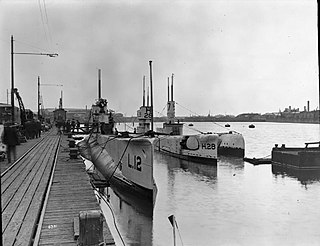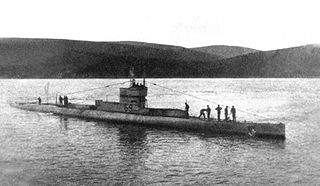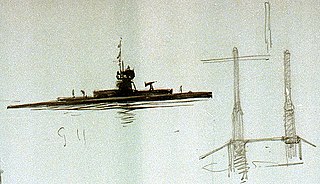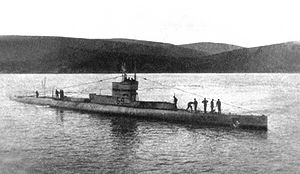
HMS L5 was a L-class submarine built for the Royal Navy during World War I. The boat survived the war and was sold for scrap in 1931.

HMS L52 was a late-model L-class submarine built for the Royal Navy during the First World War. The boat was not completed before the end of the war and was sold for scrap in 1935.
HMS L53 was a late-model L-class submarine built for the Royal Navy during the First World War. The boat was not completed before the end of the war and was sold for scrap in 1939.

HMS L27 was a L-class submarine built for the Royal Navy during World War I. The boat was not completed before the end of the war and was one of three L-class boats to serve during World War II. She served as training boat before being broken up in 1944.
HMS L11 was a L-class submarine built for the Royal Navy during World War I. She was one of five boats in the class to be fitted as a minelayer. The boat survived the war and was sold for scrap in 1932.

HMS L12 was a L-class submarine built for the Royal Navy during World War I. She was one of five boats in the class to be fitted as a minelayer. The boat survived the war and was sold for scrap in 1932.

HMS L15 was a L-class submarine built for the Royal Navy during World War I. The boat survived the war and was sold for scrap in 1932.
HMS L17 was a L-class submarine built for the Royal Navy during World War I. She was one of five boats in the class to be fitted as a minelayer. The boat survived the war and was sold for scrap in 1934.
HMS L21 was a L-class submarine built for the Royal Navy during World War I. The boat was not completed before the end of the war and was sold for scrap in 1939.

HMS G1 was a British G-class submarine built for the Royal Navy during World War I.

HMS G2 was a British G-class submarine built for the Royal Navy during World War I.

HMS G4 was a British G-class submarine built for the Royal Navy during World War I.

HMS G5 was a British G-class submarine built for the Royal Navy during World War I.

HMS G6 was a British G-class submarine built for the Royal Navy during World War I.

HMS G7 was a British G-class submarine built for the Royal Navy during World War I.

HMS G8 was a G-class submarine of the Royal Navy that saw service during World War I, costing an estimated £125,000.

HMS G11 was a G-class submarine of the Royal Navy in service during the First World War. One of six of her class built by Vickers at Barrow in Furness, she was launched on 22 February 1916, and commissioned on 13 May 1916.

HMS G12 was a British G-class submarine built for the Royal Navy during World War I.

HMS G13 was a British G-class submarine built for the Royal Navy during World War I.

HMS G14 was a British G-class submarine built for the Royal Navy during World War I.









